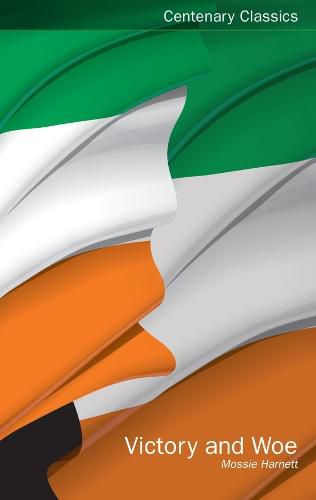Readings Newsletter
Become a Readings Member to make your shopping experience even easier.
Sign in or sign up for free!
You’re not far away from qualifying for FREE standard shipping within Australia
You’ve qualified for FREE standard shipping within Australia
The cart is loading…






The Centenary Classics series examines the fascinating time of change and evolution in the Ireland of 100 years ago during the 1916-23 revolutionary period. Each volume is introduced by Fearghal McGarry who sets the scene of this important period in Ireland’s history. Victory and Woe is an account of life at the grassroots during the Irish War of Independence and the Civil War by the Officer Commanding, 2nd Battalion, West Limerick Brigade of the Irish Volunteers. Mossie Harnett (1893-1977), who fought on the Anti-Treaty side in the Civil War, describes his early life on a farm in Tournafulla in the southwest corner of Limerick, his enrolment in the Irish Volunteers in 1915, and his involvement in the conflict until his release from a Free State prison in 1923. In an appendix, the British troops’ little-known and short-lived practice of taking hostages in order to protect themselves is vividly described by Mossie’s cousin, Dr Edward Harnett, who was taken hostage in spring 1921. An introduction by Harnett’s son-in-law, James H. Joy, places his father-in-law’s text in the context of the revolutionary period.
$9.00 standard shipping within Australia
FREE standard shipping within Australia for orders over $100.00
Express & International shipping calculated at checkout
The Centenary Classics series examines the fascinating time of change and evolution in the Ireland of 100 years ago during the 1916-23 revolutionary period. Each volume is introduced by Fearghal McGarry who sets the scene of this important period in Ireland’s history. Victory and Woe is an account of life at the grassroots during the Irish War of Independence and the Civil War by the Officer Commanding, 2nd Battalion, West Limerick Brigade of the Irish Volunteers. Mossie Harnett (1893-1977), who fought on the Anti-Treaty side in the Civil War, describes his early life on a farm in Tournafulla in the southwest corner of Limerick, his enrolment in the Irish Volunteers in 1915, and his involvement in the conflict until his release from a Free State prison in 1923. In an appendix, the British troops’ little-known and short-lived practice of taking hostages in order to protect themselves is vividly described by Mossie’s cousin, Dr Edward Harnett, who was taken hostage in spring 1921. An introduction by Harnett’s son-in-law, James H. Joy, places his father-in-law’s text in the context of the revolutionary period.